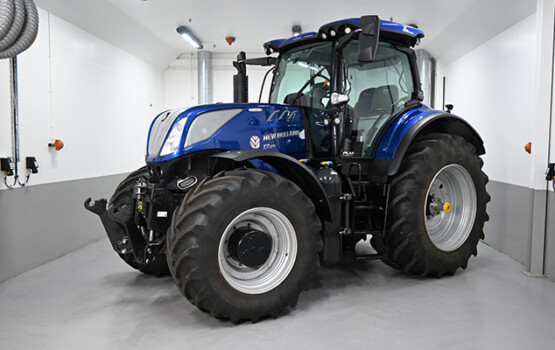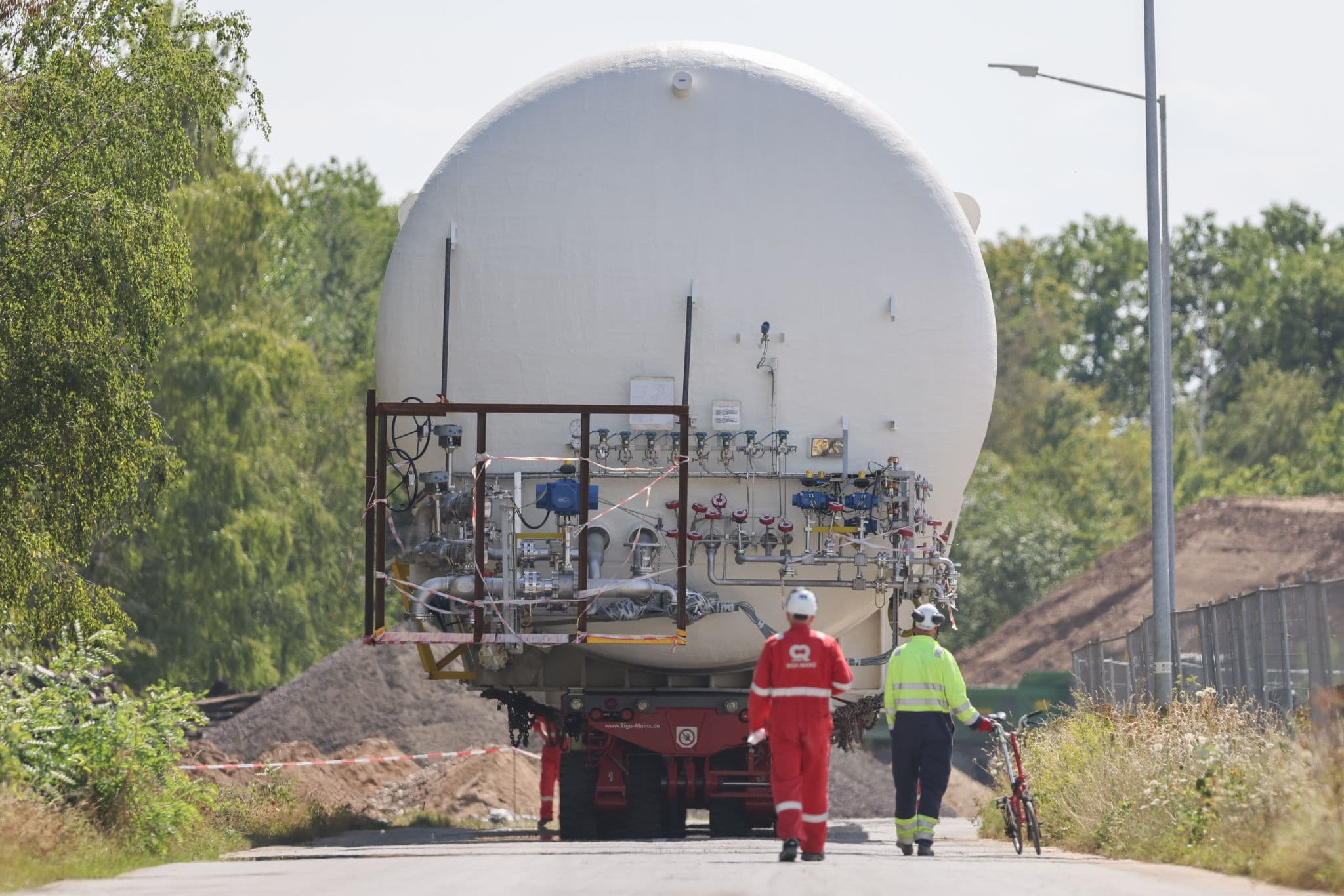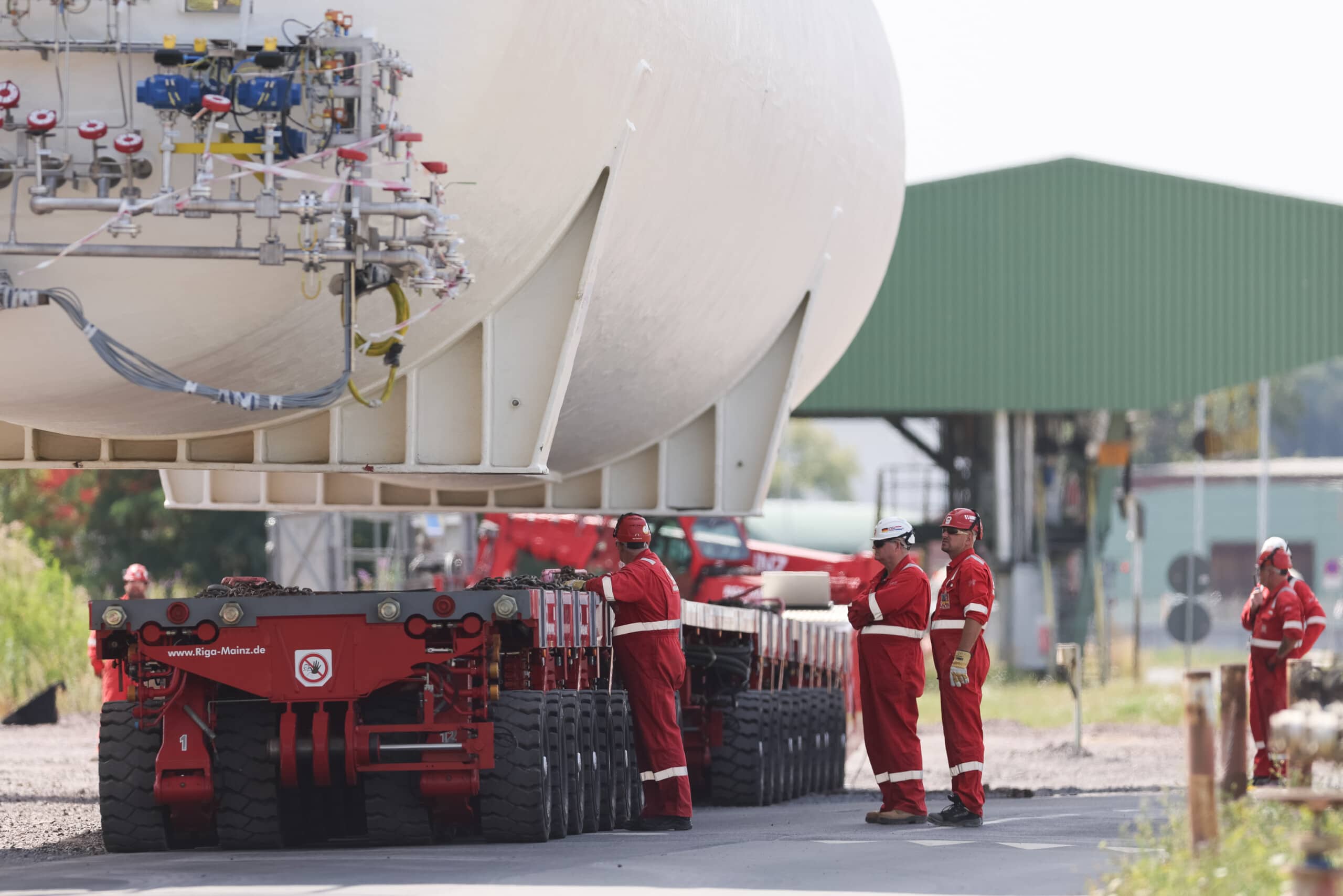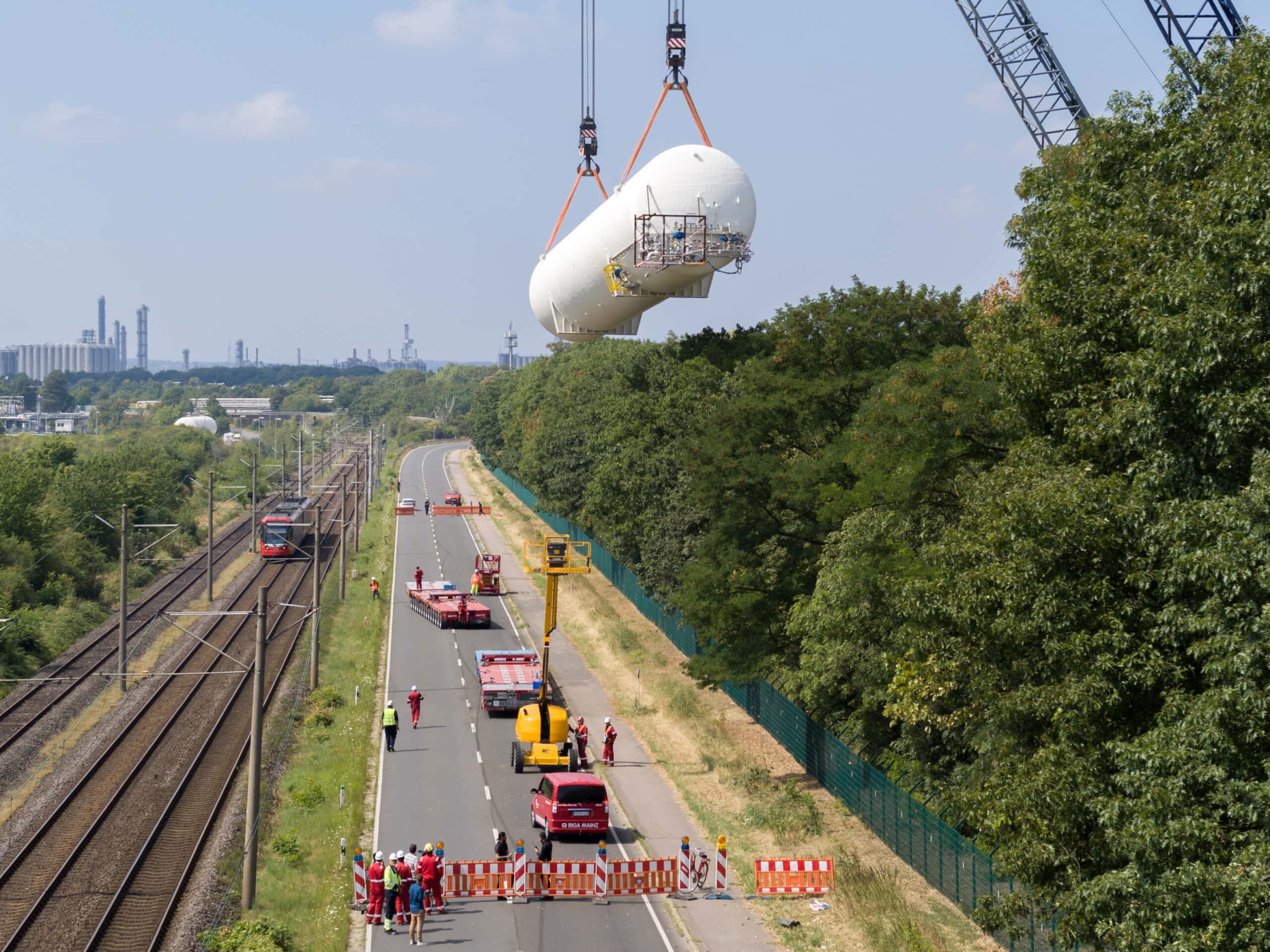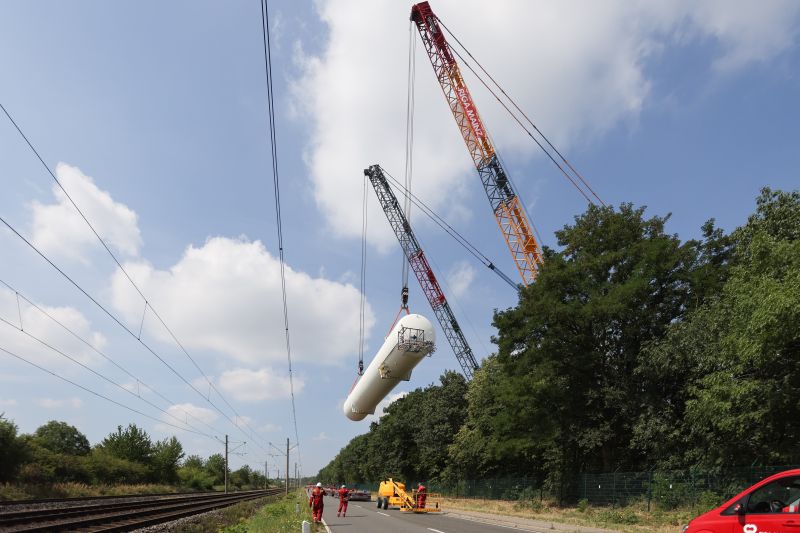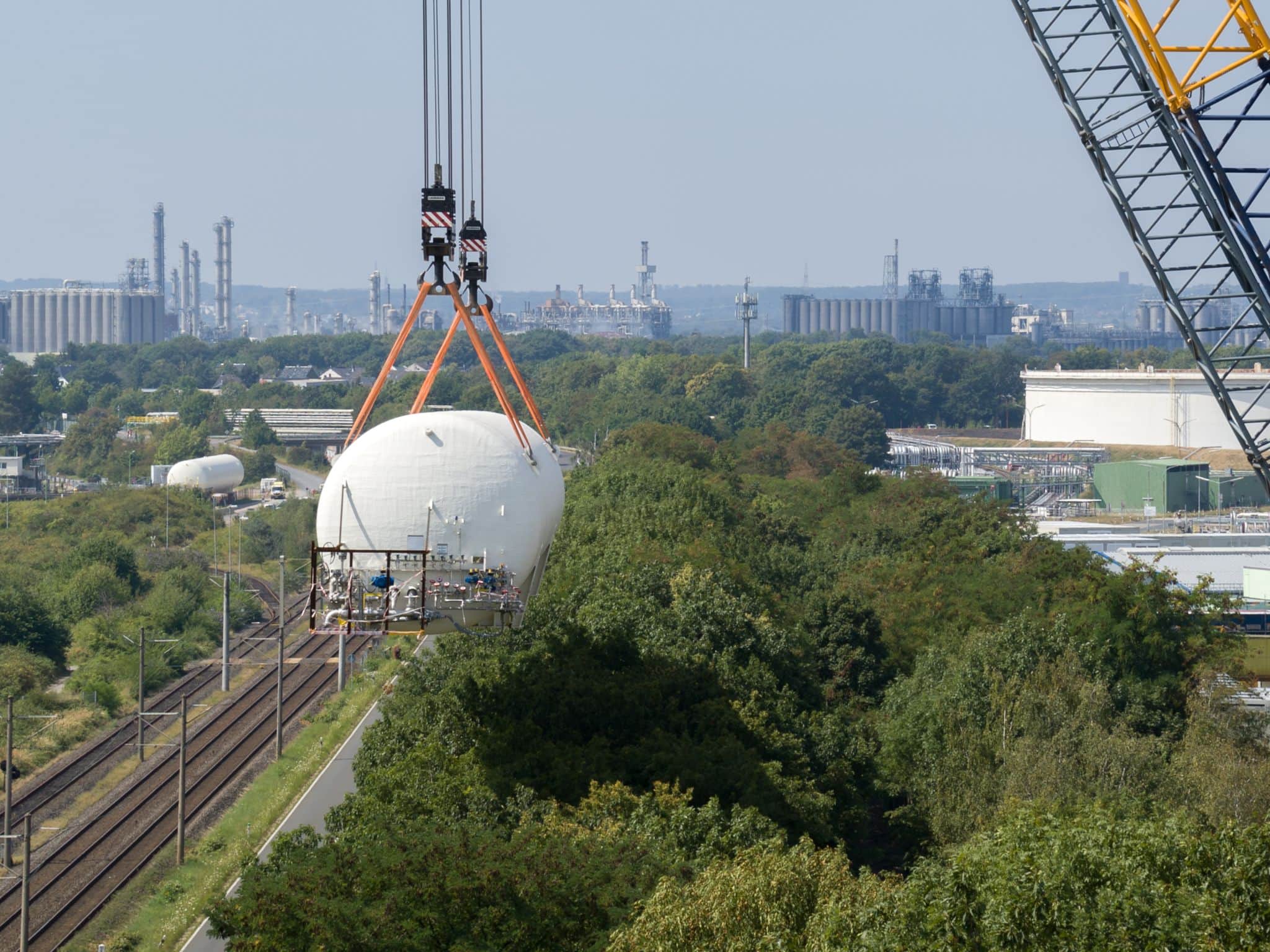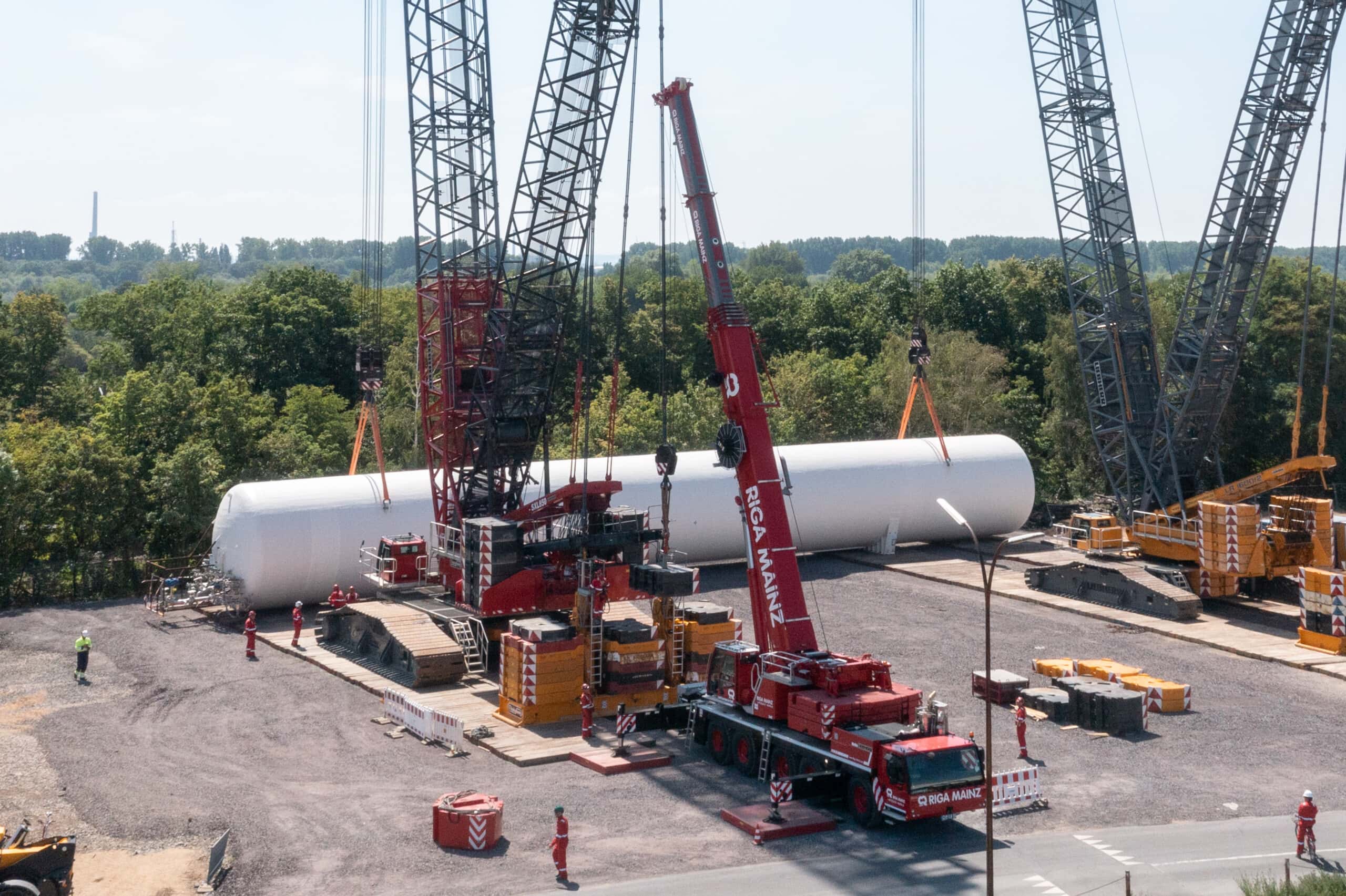Portal for more climate-friendly mobility
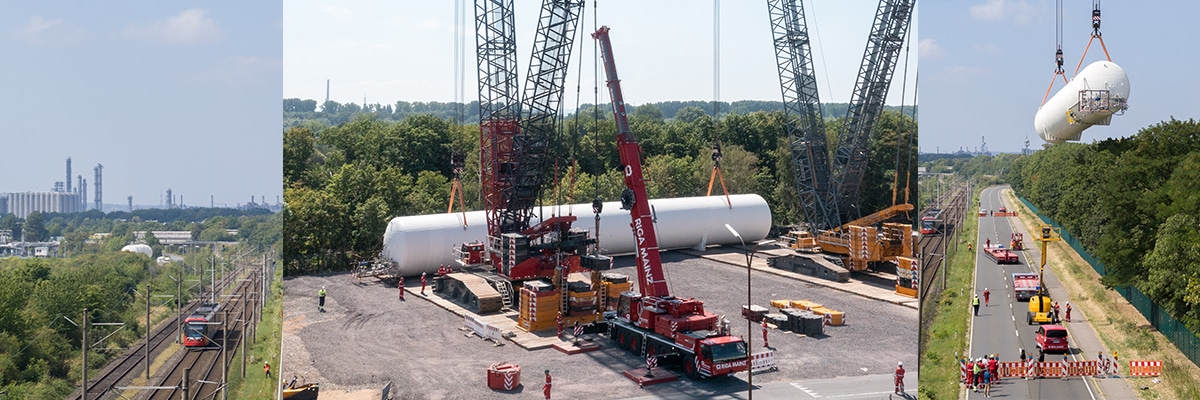
Visible symbol of the energy revolution
Construction of Shell’s largest bioLNG plant in Germany is progressing rapidly. The ground-breaking ceremony only took place in February, but by the second half of 2023, the plant in the south of Cologne is expected to supply up to 100,000 tonnes of CO2-neutral fuel for LNG-powered trucks. Its three gigantic LNG tanks were recently installed.
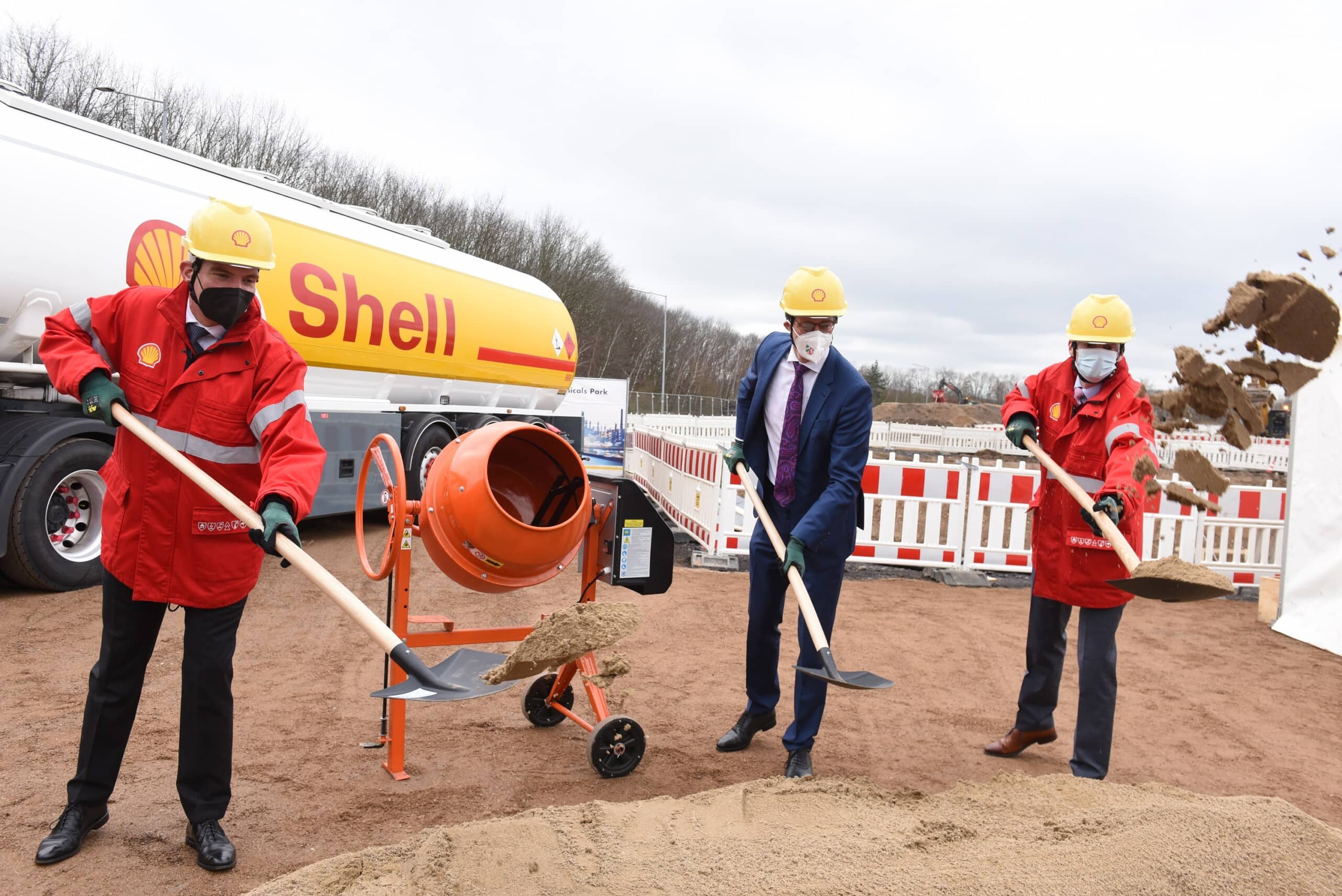 Groundbreaking ceremony for Germany’s largest biogas liquefaction plant in February 2022 on the site of the Shell Energy and Chemicals Park Rheinland. Source: Shell Germany
Groundbreaking ceremony for Germany’s largest biogas liquefaction plant in February 2022 on the site of the Shell Energy and Chemicals Park Rheinland. Source: Shell Germany
Following on from the Refhyne electrolyser for green hydrogen (H2), which went into operation in 2021, construction of Germany’s largest bioLNG plant, which began in February, is another important step in transforming Shell Energy and Chemicals Park Rhineland into a platform for sustainable energy and chemical products. The new bioLNG plant – the largest in Germany – is to produce up to 100,000 tonnes of liquefied biogas per year from the second half of 2023, i.e. CO2-neutral fuel.
BioLNG or LBG has enormous potential for the rapid decarbonisation of heavy-duty transport. The quantities produced in Godorf will be capable of meeting the annual demand of around 4,000 to 5,000 LNG trucks. This will make it possible to save up to one million tonnes of CO2 per year as compared to conventional diesel-powered trucks. A visible symbol of this energy revolution in recent days was the delivery of three tanks measuring 50 metres in length and six metres in height. These 246-tonne giants were hoisted over the trees to avoid having to fell the latter for transportation purposes. It was a spectacular event and at the same time a logistical challenge.
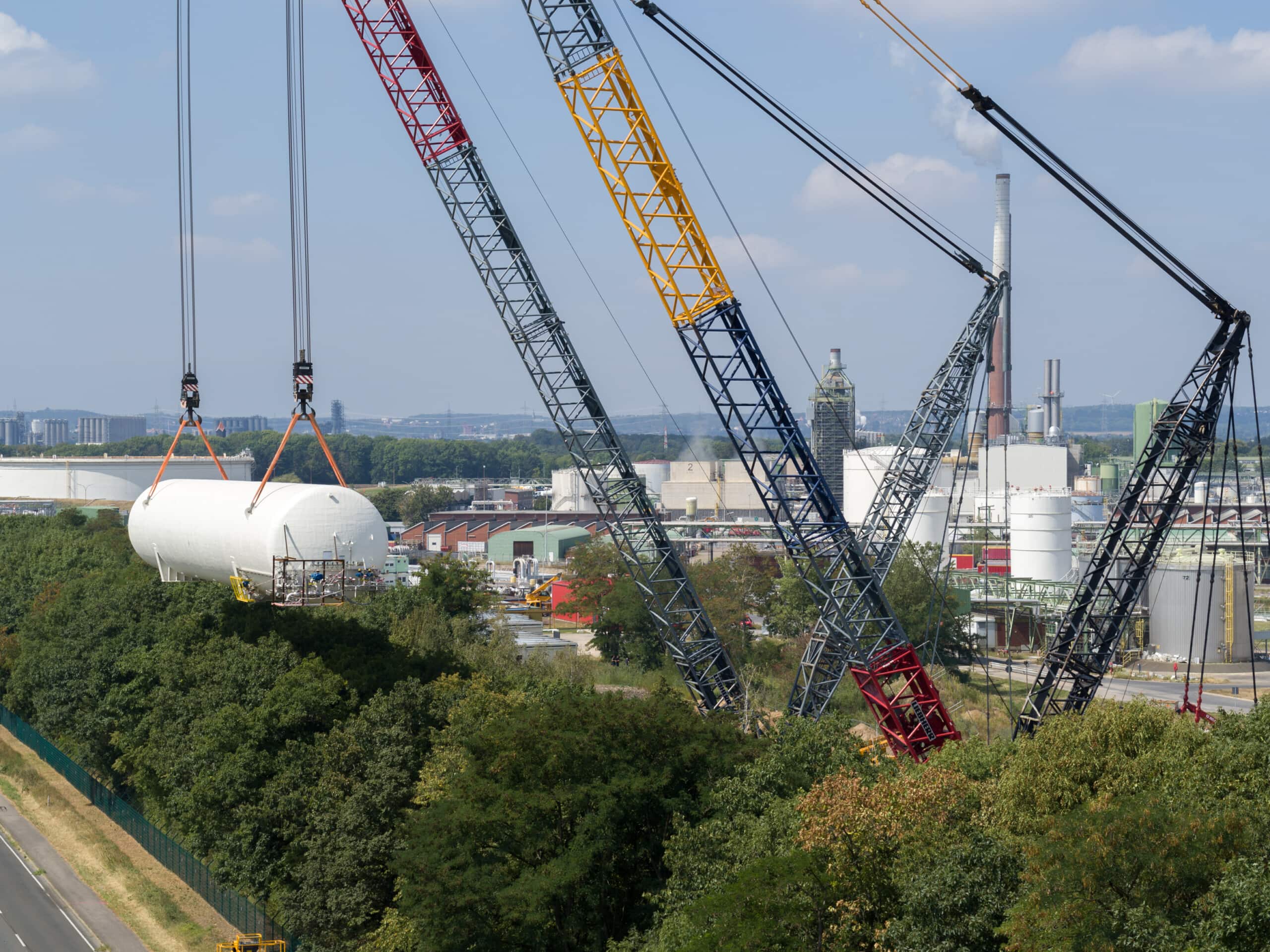 Spectacular how the three huge tanks for the largest bio-LNG plant are hoisted onto the Shell site. Source: Shell Germany
Spectacular how the three huge tanks for the largest bio-LNG plant are hoisted onto the Shell site. Source: Shell Germany
Two 78-metre-high cranes were set up especially to perform this lifting operation. The tanks themselves had travelled a long way: coming from the Czech Republic, their route took them across the Elbe and North Sea to Antwerp, Belgium, and then over the Rhine to the port of Cologne-Godorf. The unloading of the ship and the onward journey via the narrow access roads to the port and as far as the cranes also posed a major logistical challenge – which was successfully mastered.
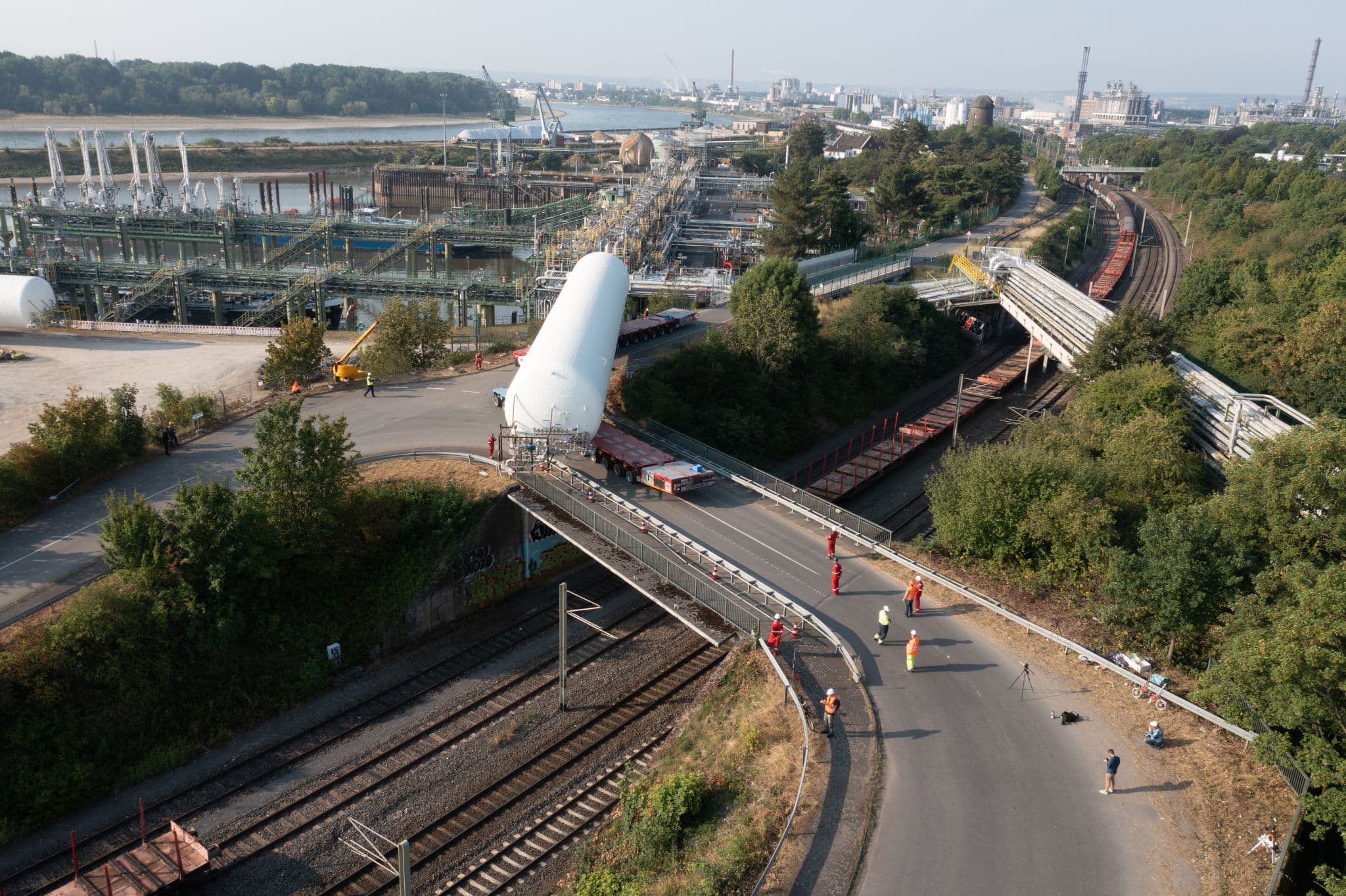 Even getting them to their final location was a logistical masterstroke. Source: Shell Germany
Even getting them to their final location was a logistical masterstroke. Source: Shell Germany
The new bioLNG plant at Shell Energy and Chemicals Park Rhineland will be supplied via the normal gas pipeline, which can easily transport biogas. This also allows large volumes to be processed centrally. In addition to the tanks, it includes a liquefaction stage – in which the gas is cooled to minus 162 degrees Celsius and liquefied to bioLNG – gas purification and drying. There are also two filling stations for tankers: this bioLNG will subsequently be transported in special tanker trucks to the energy company’s LNG filling stations throughout Germany, of which there are now 30. In this way, it will provide a fuel that makes logistics virtually CO2-neutral for numerous freight forwarding companies. (jas, 18 August 2022)
You might also be interested in
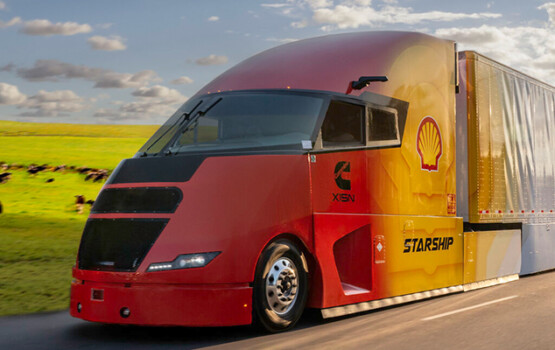
Shell Starship on record hunt
